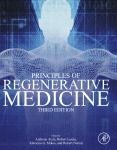Circa 2019 face_with_colon_three
Multipotent cells are critical to regenerative medicine and its associated deployment strategies. Localizing an abundant source of autologous, adult stem cells circumvents the immunological prohibitions of allogeneity and ethical dilemmas of embryologic stem cells, respectively. Classically, these cells have been described as mesenchymal stem cells (MSCs). In this chapter, we characterize adipose tissue as a unique source of MSCs because of its ubiquity, redundancy, and procurability. Specifically, lipoaspirates can be minimally processed to provide a heterogenous, cell-dense isolate – the stromal vascular fraction (SVF) – composed of terminally differentiated vessel-associated cell lines as well as putative progenitor cells. These cells have been cultured and expanded, giving rise to a dynamic cell line termed adipose-derived stromal cells (ASCs). SVF and ASC cell isolates are often administered by standard clinical routes including parenteral, topical application, and local injection in the clinical translational studies of cardiovascular ischemia, neurological injury, rheumatologic and orthopedic disease as well as advanced wound care and tissue engineering. These clinical applications raise safety concerns specific to administration, sequestration, and tumor growth augmentation. Further studies SVF and ASC cells are necessary to realize their potential in a regenerative medicine capacity.
